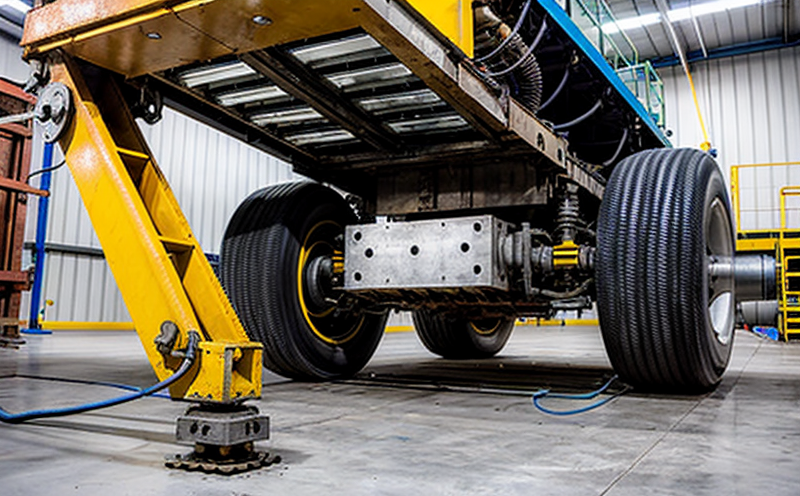Role of mechanical integrity evaluation in maintenance
The Crucial Role of Mechanical Integrity Evaluation in Maintenance A Game-Changer for Businesses
In todays fast-paced industrial landscape, ensuring the reliability and integrity of equipment is more crucial than ever. Equipment failures can lead to costly downtime, damage to reputation, and even catastrophic consequences. This is where mechanical integrity evaluation (MIE) comes into play a laboratory service that assesses the structural integrity and fitness for purpose of critical assets.
At Eurolab, our team of experts offers comprehensive MIE services to help businesses like yours mitigate risks, optimize performance, and maintain compliance with regulatory requirements. In this article, well delve into the importance of mechanical integrity evaluation in maintenance, highlighting its key benefits, applications, and FAQs.
Why Mechanical Integrity Evaluation Matters
Mechanical integrity is a critical aspect of plant operations, encompassing the design, fabrication, installation, inspection, testing, operation, and maintenance of equipment. Equipment failures can occur due to various factors such as material degradation, corrosion, fatigue, or inadequate design. Regular mechanical integrity evaluation helps identify potential issues before they become major problems.
A robust MIE program is essential for businesses operating in industries with high safety and regulatory standards, such as
Oil and gas
Power generation
Chemical processing
Petrochemicals
Aerospace
Advantages of Mechanical Integrity Evaluation
Our comprehensive MIE services at Eurolab offer numerous benefits to your business. Here are some key advantages
Risk Mitigation
Reduced risk of equipment failures, minimizing downtime and associated costs
Identification of potential hazards, enabling proactive measures to ensure worker safety
Cost Savings
Optimized maintenance schedules, preventing unnecessary repairs or replacements
Extended equipment lifespan through targeted interventions and preventative measures
Improved Performance
Enhanced efficiency and productivity due to optimized equipment operation
Increased confidence in equipment reliability, reducing anxiety and stress for operators
Compliance
Adherence to regulatory requirements and industry standards
Proactive management of documentation and records, ensuring smooth audits and inspections
Asset Management
Accurate assessment of equipment condition, informing informed decision-making
Prioritization of maintenance activities based on actual need, maximizing resource allocation
How Does Mechanical Integrity Evaluation Work?
Our MIE process involves a multi-step approach to ensure comprehensive results. Heres an overview
Assessment Planning Our team works with you to define the scope of work and identify specific equipment for evaluation.
Data Collection We gather relevant data, including inspection reports, material certificates, and operating records.
Analysis and Reporting Our experts perform a thorough analysis of collected data, generating detailed reports highlighting findings and recommendations.
Prioritization and Implementation Together, we develop a prioritized plan for addressing identified issues, ensuring timely implementation and closure.
Frequently Asked Questions
Still unsure about the role of mechanical integrity evaluation in maintenance? Here are some common questions and answers to help clarify things
Q What is the purpose of mechanical integrity evaluation?
A The primary goal of MIE is to assess equipment reliability and fitness for purpose, identifying potential issues before they become major problems.
Q How often should I conduct mechanical integrity evaluations?
A Regular assessments (typically every 2-5 years) are recommended, but the frequency depends on specific industry regulations, equipment criticality, and operational history.
Q What types of equipment require mechanical integrity evaluation?
A Critical assets such as pressure vessels, piping systems, heat exchangers, pumps, and valves typically require MIE. The scope may vary depending on individual circumstances.
Q Can I conduct mechanical integrity evaluations in-house or should I outsource to a laboratory service like Eurolab?
A While some organizations may have the necessary expertise and resources for MIE, many benefit from partnering with a specialized laboratory service like ours. Our team provides objectivity, expertise, and efficiency, ensuring high-quality results.
Q What are the benefits of outsourcing mechanical integrity evaluation to Eurolab?
A By entrusting your MIE needs to us, youll enjoy advantages such as
Objectivity and independence
Access to specialized expertise and knowledge
Streamlined workflow and efficient turnaround times
Compliance with industry regulations and standards
Conclusion
In conclusion, mechanical integrity evaluation plays a vital role in ensuring the reliability and efficiency of critical equipment. Our comprehensive MIE services at Eurolab offer businesses like yours a safe haven from risks associated with equipment failures. By partnering with us, youll enjoy numerous benefits, including risk mitigation, cost savings, improved performance, compliance, and enhanced asset management.
Dont wait until its too late take proactive steps to safeguard your operations today. Contact us at Eurolab to discuss your mechanical integrity evaluation needs and discover how we can help you achieve optimal equipment reliability and performance.




